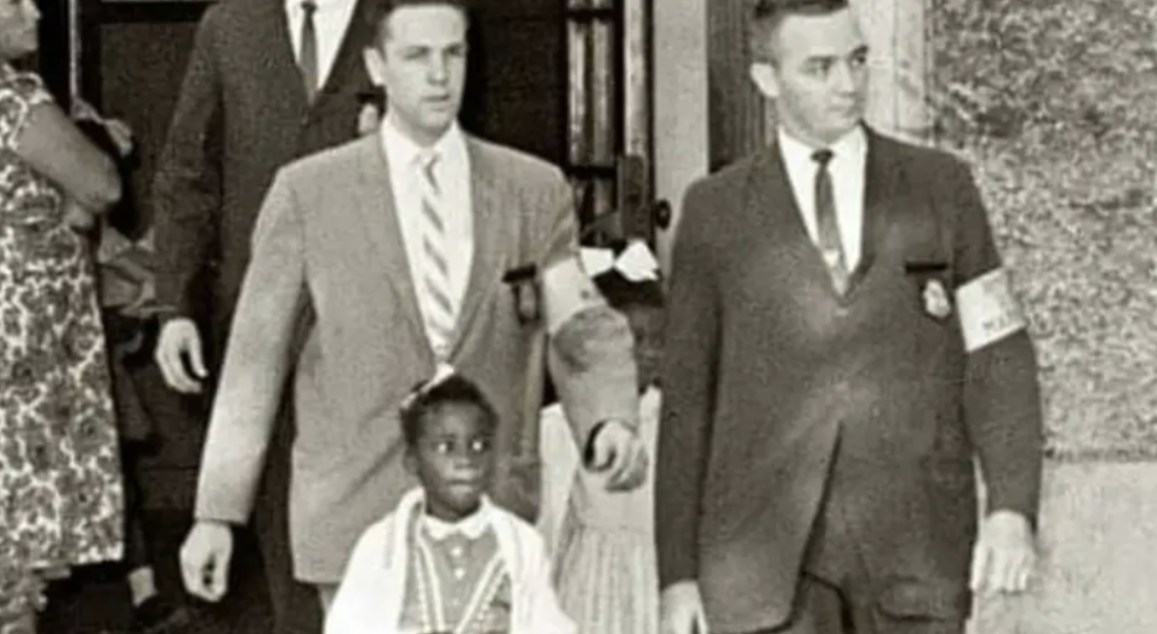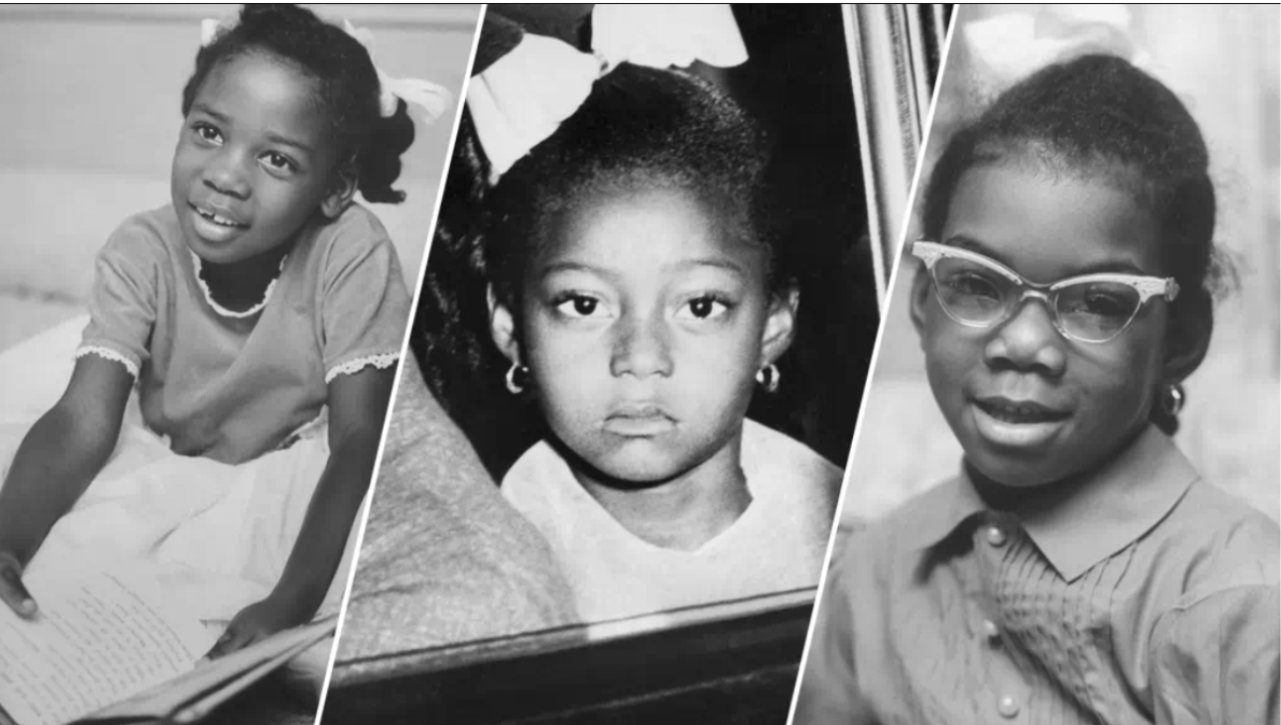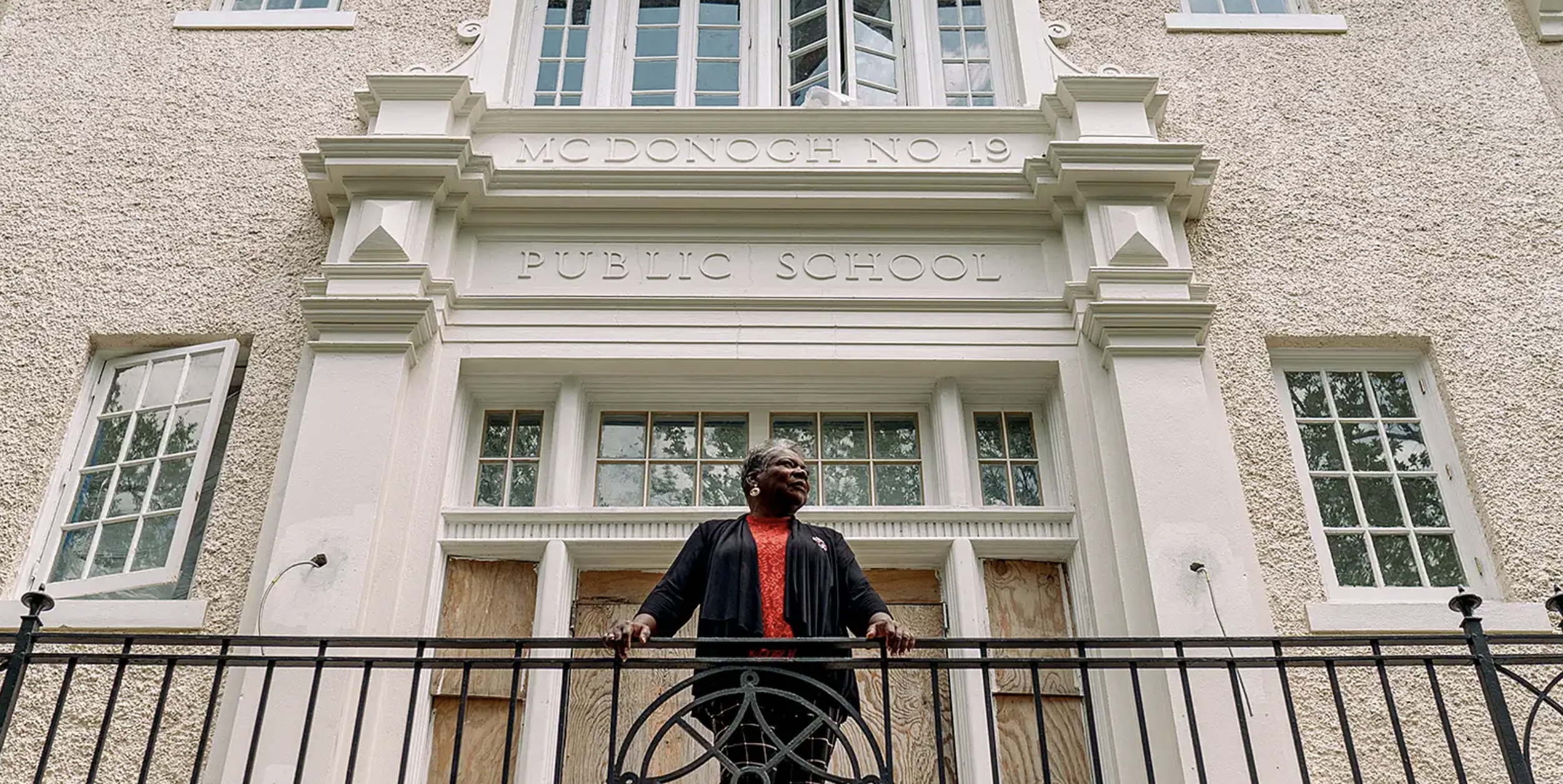By Nina Berry, Isabella Leonard, and Mallika Vashist
“Were you afraid?” I asked Dr. Leona Tate.
It’s a chilly November morning in November 1960 in the 9th Ward of New Orleans. A young girl—just 6 years old—makes her way up the steps to attend her first day at McDonogh No. 19 Elementary School. Surrounding her are more than one hundred policemen. Alert, they attempt to maintain order as a massive crowd—over a thousand strong—watch her ascent while jeering in protest.
“I can say that I was not afraid,” Dr. Tate replied calmly, with a look of sincere confidence, as she recalled her actions alongside Gail Etienne and Tessie Prevost, which would one day become historical. Together with Ruby Bridges, who desegregated William Frantz Elementary School, the group of 6-year-olds would become known as “The New Orleans Four” for their historic role in desegregating New Orleans public schools.

For any other young child, it would have been a frightening sight: on all sides of McDonogh 19, fierce crowds protested with their signs and wrathful attitudes and taunts. The young girls, dressed to the nines, presented a stark contrast as they bravely led the way in desegregating New Orleans schools. Their parents never discussed the gravity of the situation that day: girls knew they would each be escorted by U.S. Marshalls, and were told to keep their heads away from the car window, and to wait until they could enter the classroom, but that was it.
From that day on, Tate, Etienne, and Prevost became known as the McDonogh Three. They remained the only students of McDonogh 19 as parents pulled their children out of school in protest of integration. 
The obstacles the McDonogh Three faced did not stop at elementary school. After second grade, the girls transferred to T.J. Semmes Middle School, where they faced intense backlash and racism. However, the story of the McDonogh Three is one of resilience and perseverance. Nearly six years after Brown v. Board of Education, the girls were the first to integrate schools in New Orleans – yet their story is underrecognized in Civil Rights history. Leona Tate, one of the McDonogh Three, dedicated her life to ensuring their story is told and honored for its importance in the struggle for justice and equity.
Leona Tate’s philanthropy dates beyond The TEP Center, which she founded to teach, exhibit, and engage visitors in the history of civil rights in New Orleans. In 2009 she founded the Leona Tate Foundation for Change (LTFC) to educate young people about the McDonogh Three and the history behind New Orleans integration.
Tate noted the lack of mention of New Orleans’ history when discussing Civil Rights. Growing up, children are more likely to learn about the Little Rock 9, the Montgomery Alabama bus boycotts, and the Birmingham church bombings, before learning about the movements that took place in their backyards. With education at the core of her foundations, Dr. Tate offers multiple programs to enhance the dialogue surrounding Civil Rights and Race in New Orleans. The “LTFC Storytellers Experience” is a 90-minute tour of the TEP Center where students have to complete a Civil Rights Activity and have the opportunity to have a sit-down Q&A with Leona Tate. It is a once-in-a-lifetime opportunity to hear first-hand accounts of the Civil Rights movement from a trailblazer herself. In addition, the TEP Center offers a monthly forum dedicated to “highlighting the untold stories of the Civil Rights Movement in New Orleans and connecting them to [the] present day” (Leona Tate Foundation TEP Talks). Finally, “Ringing the Bell” is a professional development presentation highlighting the need for teachers to include Civil Rights lessons into core curriculum standards.
Leona Tate founded LTFC with the main goal of turning the historic McDonogh 19 School into the Tate Etienne and Prevost (TEP) Center as an “exhibition space dedicated to the history of New Orleans Public Schools Desegregation, Civil Rights, and restorative justice” (Leona Tate Foundation). In 2022, her dream came true, the TEP Center officially opened its doors to the public in McDonogh #19 school, where at 6 she integrated New Orleans public schools.
It is becoming a political trend to erase historical narratives and dismantle programs promoting equity and inclusion, but the TEP Center’s work ensures that the past and present are not forgotten. Today the TEP Center is a reminder for all that forging a fairer future can only occur when we safeguard our history.

You can support the TEP Center by sharing their story, keeping up with current events, and donating to the Leona Tate Foundation for Change. Your contribution keeps the TEP Center open and flourishing. It will maintain incoming exhibitions and programming on Civil Rights in New Orleans, to inspire visitors and the greater community. When you support the TEP Center, you support the greater goal of dismantling racism in the United States and the remembrance of history that is critical for reconciliation and social change.
 NOLAbeings
Multimedia artist Claire Bangser created NOLAbeings as a portrait-based story project that marries...
NOLAbeings
Multimedia artist Claire Bangser created NOLAbeings as a portrait-based story project that marries...
 Data corner: Adobe Suite (create a PDF, social media graphic, presentation, edit a photo and video
Data corner is where you go to work with analytics and top tech skills. It takes on everything from PERL and SQL to Canva and Sprout Social.
Data corner: Adobe Suite (create a PDF, social media graphic, presentation, edit a photo and video
Data corner is where you go to work with analytics and top tech skills. It takes on everything from PERL and SQL to Canva and Sprout Social.

Incredible story of courage, resilience, and lasting impact. Dr. Leona Tate and the McDonogh Three deserve to be remembered and honored—what a powerful legacy through the TEP Center. sports